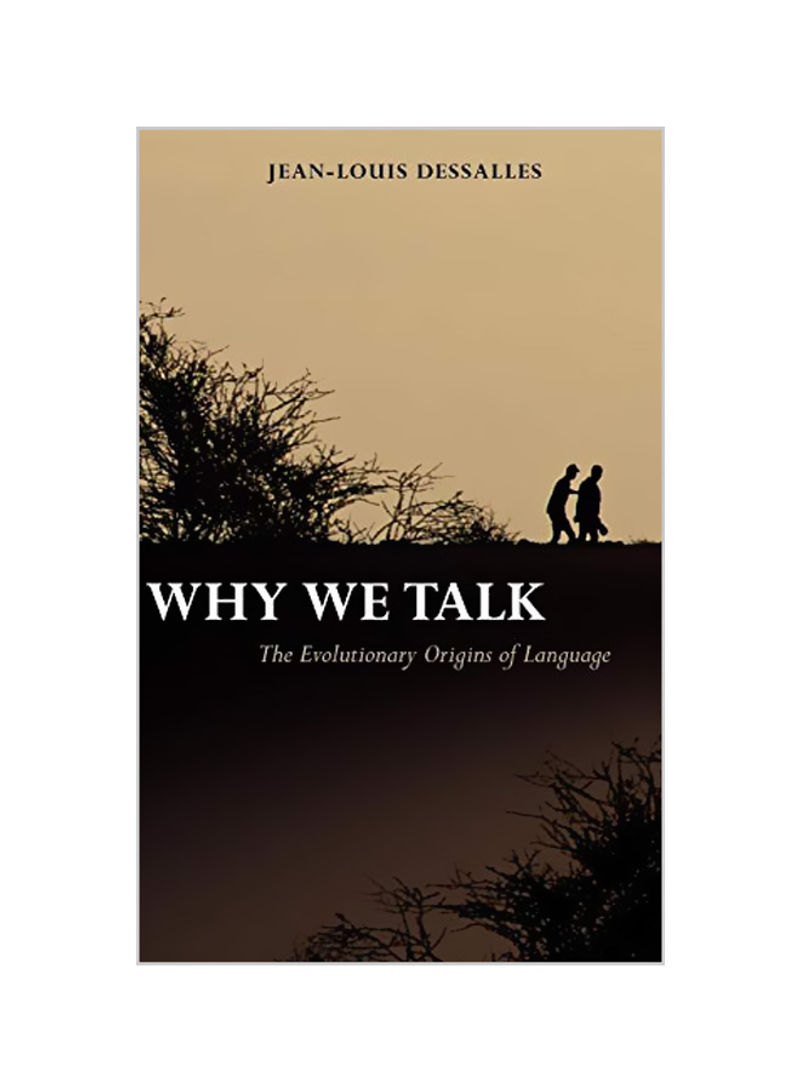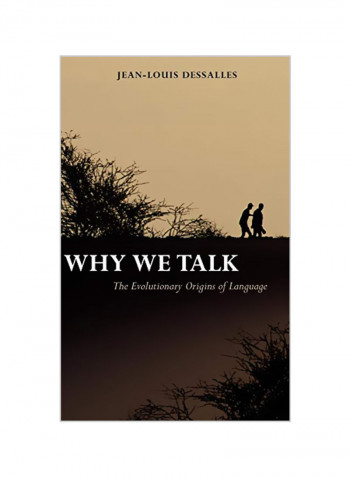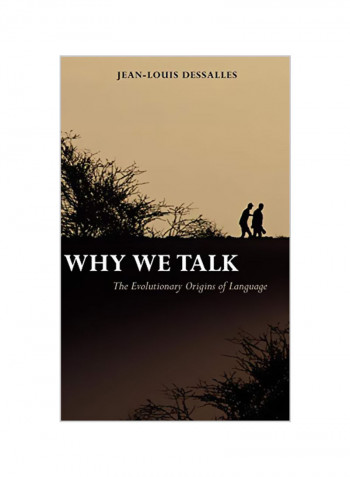Why We Talk: The Evolutionary Origins Of Language Hardcover
Recommend
Sort by
Rating
Date
Specifications
Author 1
Jean-Louis Dessalles
Book Description
Jean-Louis Dessalles explores the co-evolutionary paths of biology, culture, and the great human edifice of language, linking the evolution of the language to the general evolutionary history of humankind. He provides searchingly original answers to such fundamental paradoxes as to whether we acquired our greatest gift in order to talk or so as to be able to think, and as to why human beings should, as experience constantly confirms, contribute information for the well-being of others at their own expense and for no apparent gain: which if this is one of language's main functions appears to make its possession, in Darwinian terms, a disadvantage. Dr Dessalles looks for solutions in the early history of human species and considers the degree to which language evolved as a means of choosing profitable coalition partners and maximizing individual success within a competitive social environment. The author opens with a discussion of the differences between animal and human communication and the biological foundations of language. He looks at the physiological preconditions for language evolution and the early evolution of meaning and communication. He then embarks on an important and original account of the natural history of conversation. Here he considers the roles of language in supporting social cohesion and information exchange. This challenging and original account will appeal to all those interested in the origins of language and the evolution of human behaviour.
ISBN-13
9780199276233
Language
English
Publisher
Oxford University Press
Publication Date
01-03-2007
Number of Pages
400
About the Author
Jean-Louis Dessalles is Associate Professor at the Ecole Nationale Superieure des Telecommunications, Paris, where he organized the Third International Conference on the Evolution of Language in 2000. He is author of L'ordinateur genetiqu, and Aux Origines du langage, both were published by Hermes-Science. He has published numerous articles in English and French on cognitive science, computer-assisted learning, communication, and language evolution. ; James Grieve is an Emeritus Reader at The Australian National University, Canberra. He has translated works in language and linguistics, Lacour-Gayet's Histoire de l'Australie, and two parts of Proust's A la recherche du temps perdu. He has published a Dictionary of Contemporary French Connectors and two novels for Young Adults
Editorial Review
This is a provocative, erudite and enjoyable book, written to stimulate debate * Raphael Salkie, THES *



